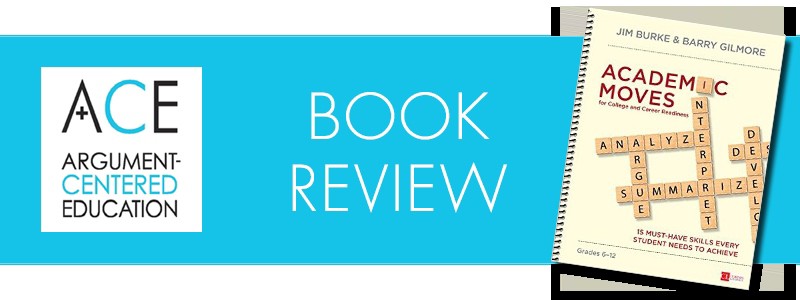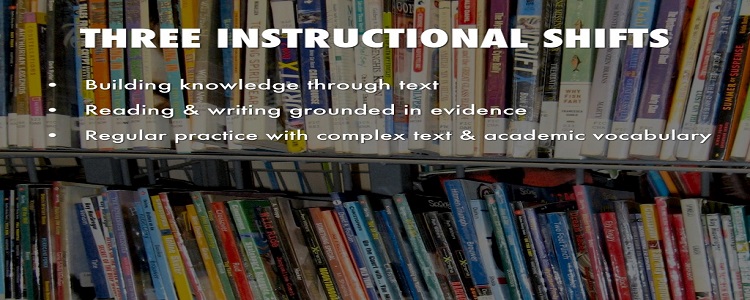What Our Students Can Teach Us About Argument
By Dr. Jocelyn Chadwick
All is argument. Everything. Most individuals don’t even think of language and communication from this perspective, but most assuredly, Aristotle did. Often, we educators have made micro-delineations that are, frankly, too isolated and insular: expository writing is not similar to descriptive writing, is not similar to persuasive writing, is not similar to argumentative writing, is not similar to verbal expressions, and is not similar or relevant to any environment other than education. And not any of the previous delineations have any connections to literature or grammar and linguistics. However, argument undergirds and connects every verbal and written expression.
Argument-Based Presentations on the Opening of the American West
Peirce International School humanities teacher Tiffany Brugman and Argument-Centered Education have collaborated on the argumentalization of the school’s Opening the American West unit. We wished to share it out as another demonstration of the argumentalization process and the ways that it can generate student inquiry, critical thinking, college-directed argumentation skills, and communications exercise and growth.
It starts, as regular readers of The Debatifier know, with the formulation of the debatable issue(s). For this unit, the issue is formulated as a question:
What was the most important factor in the opening of the American West?
Book Review: ‘Academic Moves for College and Career Readiness’ (Corwin Literacy, 2015), by Jim Burke and Barry Gilmore
From the Outset
Renowned educators and education writers Jim Burke and Barry Gilmore have put together an eminently useful resource binder for teaching what they identify as the most essential “academic moves” in K-12 education: Academic Moves for College and Career Readiness. This study and collection of resources on the “15 must-have skills every student needs to achieve” germinated from the authors’ day-to-day opportunity, they tell us, for reading and reflecting on the problems and prompts handed out to students by their teacher colleagues.
What are we actually asking our students to do in classrooms across disciplines? How do these directions interact with the requirements of current standards such as the Common Core or the new SAT? And how can teachers be assisted in becoming more intentional about teaching the precise academic skills their assignments and assessments demonstrate that they most value? These were the generative questions of the book. Burke and Gilmore wish to bring “consistency and clarity to the language” of school work, “the language of learning.” They quote Argument-Centered Education founding advisers Gerald Graff and Cathy Birkenstein in saying that they intend for their resource binder to lay bare the “‘deep, underlying structure, [the] internal DNA’ common to the academic and cognitive moves” that students must learn to make, across all subject areas.
Three Instructional Shifts: Simplifying the Common Core & De-Mystifying Curriculum
by Mike Schmoker and Carol Jago
Simplifying and De-Mystifying Instruction
The English Language Arts Common Core could have no less than a transformational effect on American education. But this will only occur if (ironically) we recognize that the actual lists of standards themselves are the weakest portion of the Common Core documents. Done right, the ELA Common Core has the potential to right the ship of literacy, to facilitate, at long last, the creation of coherent curriculum in every course and to rescue us from the fads and pseudo-‐literacies of recent decades. This would thus eventuate in the greatest proportion of college and career-‐ready students in our history. The keys to its success are clarity and simplicity.
As many are beginning to recognize, the true strength of the (still-‐evolving) Common Core is found in the ancillary documents and appendices that accompany the standards. Imperfections notwithstanding, the general emphases contained in these documents describe authentic, traditional literacy far better than their state-‐level predecessors. Despite some occasional over-‐reach, the appendices go a long way toward clarifying what students need most and have always needed: abundant opportunities to engage in close reading of large amounts of high quality, complex text, combined with opportunities to engage in discussion and writing grounded in text.
The Five Steps to Argumentalizing Instruction
One of the signature features of the services model developed and employed by Argument-Centered Education is its embeddedness. Not only is its teacher coaching embedded within schools and active classrooms, so that teachers get observation-based feedback and targeted modeling support, but its curriculum design and adaptation works from curriculum that its partner schools and teachers are currently working with and to which they are committed. Instead of importing argument-based curriculum from outside, we work to build argumentation from the inside of an individual teacher’s, or department’s, or school’s, or district’s in-place instructional content and methodology.
External curricular components can often feel like diversions from the trajectory of a course. They can be and often are tried a couple times then quietly dropped. They can generate understandable even unspoken resistance from educators who entered the profession in part because they have an intellectual passion for certain fields of learning, things they know, and have dedicated their professional lives to sharing with the next generations. And they can impair the effectiveness of an on-going and embedded professional development strategy because they restrict demonstration of the use of argumentation to an external curriculum.






